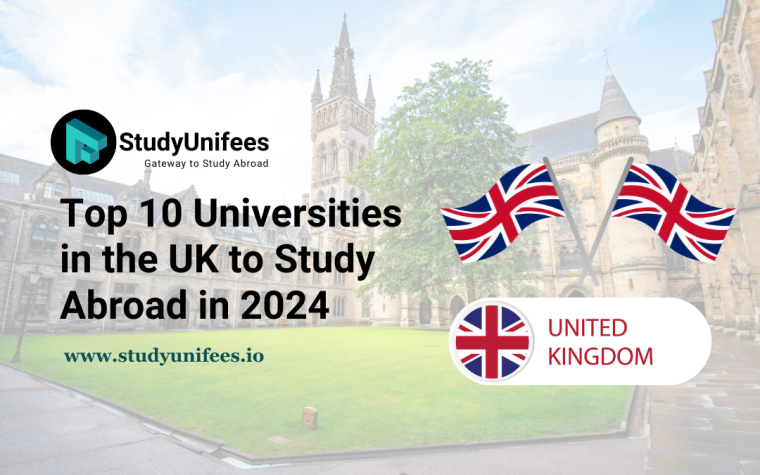As we embark on 2024, students worldwide are exploring international education opportunities. Here’s a comprehensive guide to the top 12 study abroad destinations, taking into account factors like education quality, living expenses, health and safety, and economic indicators.
1. Japan
Japan presents a compelling case as a study abroad destination for several reasons. Renowned for its world-class science and technology education, Japan offers students the opportunity to learn about cutting-edge developments in various fields. This excellence in education is a result of Japan’s history of transforming innovative ideas into globally recognized products and technologies, such as electric vehicles and digital cameras.
Moreover, Japan’s rich cultural heritage, symbolized by landmarks like Mt. Fuji and traditions like Washoku cuisine, provides an enriching experience beyond academics. The country’s emphasis on “Omotenashi” hospitality ensures a warm welcome for international students, fostering a conducive environment for learning and cultural exchange.
Safety and a secure living environment are other key aspects. Japan’s low crime rate, efficient public transportation, and robust health insurance system contribute to a secure and comfortable stay for international students. Furthermore, the diversity of its student population, with over 220,000 international students from more than 170 countries, creates a vibrant and global learning atmosphere, encouraging the exchange of ideas and cultural understanding. This blend of academic rigor, cultural richness, safety, and diversity makes Japan an attractive and fulfilling study abroad choice.
- Education: Known for STEM programs, Japan boasts prestigious universities like the University of Tokyo and Kyoto University.
- Living Expenses: Average tuition for a semester is approximately $2,800, with a monthly living cost of about $1,250.
- Safety: Japan offers a safe environment, rich in culture and technological advancements.
- Economy: The GDP per capita is around $39,650.
2. United States:
If you are considering studying abroad, the United States is a great option to consider in 2024. There are over 1100 scholarships available at top universities in the US for international students for the academic year 2024-2025, providing an average monthly stipend of $2000 along with tuition fees, accommodation charges, health insurance, and travel allowance. Some of the top universities in the US include Yale University, Harvard University, Clark University, Boise State University, and Berea College, among others. There are also various scholarships available for undergraduate and graduate studies, such as the ICSP Scholarships at the University of Oregon, the Global Undergraduate Exchange Program, the American University Emerging Global Leader Scholarship, and the AAUW International Fellowships for Women, among others. Studying in the US can help shape your future and provide you with a unique educational experience. The US has a diverse culture, a wide range of academic programs, and a strong economy, making it an attractive destination for international students. If you are interested in studying in the US in 2024, it is important to research the application process and deadlines for your desired program.
-
- Educational Excellence: The U.S. is renowned for its esteemed universities, innovative research facilities, and varied academic programs. It hosts top institutions like the Massachusetts Institute of Technology (MIT), Harvard University, and Stanford University.
- Courses and Fees: Popular courses include MS in Business Analytics, Data Science, and MBA, with fees ranging from approximately $21,000 to $90,586 per year.
- Cost of Living: The average cost of living for international students is around $10,000 – $18,000 per year. The GDP per capita of the United States in 2023 is approximately $80,412 in nominal terms and $80,412 in terms of purchasing power parity (PPP)
- Post-study Work Options: Students can apply for an Optional Practical Training (OPT) permit, a one-year work and stay-back permit offered upon completion of their degree program.
3. Canada:
I apologize for the mistake in my previous response. If you are considering studying abroad, Canada is a great option to consider in 2024. Canada is known for its high-quality education system, welcoming culture, and beautiful landscapes. Some of the top universities in Canada include the University of Toronto, McGill University, the University of British Columbia, and the University of Alberta, among others. There are also various scholarships available for undergraduate and graduate studies, such as the Vanier Canada Graduate Scholarships, the Canadian Commonwealth Scholarship Program, and the Ontario Graduate Scholarship, among others. Studying in Canada can provide you with a unique educational experience and opportunities to explore a new culture. Canada is also known for its strong economy and job opportunities, making it an attractive destination for international students. If you are interested in studying in Canada in 2024, it is important to research the application process and deadlines for your desired program.
-
- Global Recognition: Canadian universities like the University of Toronto, McGill University, and the University of British Columbia are globally recognized for their academic teachings and state-of-the-art facilities.
- Courses and Fees: Courses in Business Management, IT & Computer Science, and Media & Journalism range from 14,000 to 70,000 CAD per year.
- Cost of Living: The average annual cost for international students is around 18,340 CAD. According to the International Monetary Fund (IMF), the GDP per capita in Canada in 2023 is 59,812 international dollars per capita, which is equivalent to approximately 48,000 USD
- Post-study Work Opportunities: Graduates can apply for Post-graduation work permits (PGWPs) according to eligibility criteria.
4. England
England is an esteemed destination for international students, offering a multitude of compelling reasons to pursue higher education there. Firstly, the high-quality education provided by UK universities is globally recognized, with many institutions ranking among the best in the world. This reputation is bolstered by the impressive research output of these universities, contributing significantly to various fields.
The UK is renowned for its welcoming attitude towards international students, fostering a diverse and culturally rich environment. This inclusivity offers students a unique opportunity to interact with peers from around the world, enhancing their educational experience.
The variety of courses available in UK universities caters to a wide array of interests and academic pursuits, ranging from traditional subjects to modern interdisciplinary fields. Additionally, UK universities uphold high standards of teaching, regularly inspected by the Quality Assurance Agency for Higher Education, ensuring that students receive an education of the highest quality.
Another attractive aspect of studying in England is the duration of courses, with most undergraduate courses taking three years to complete. This shorter duration leads to quicker graduation and potential savings on tuition and living expenses. Scholarships and funding opportunities provided by UK universities also support students financially, making education more accessible.
Living in the UK offers a blend of cosmopolitan city life and charming countryside experiences, along with historical landmarks, music festivals, and a rich culinary scene. This diverse lifestyle enriches the overall experience of studying in the country.
For international students, the opportunity to work part-time during their studies and full-time during holidays allows for financial independence and gaining practical experience. The high rate of employability of UK graduates, recognized worldwide, provides a strong foundation for a successful career. Furthermore, studying in an English-speaking country like England enhances language skills, which is crucial in today’s global business arena.
These factors collectively make England an attractive choice for international students seeking a comprehensive and enriching higher education experience.
- Education: Home to world-class institutions like Cambridge and Oxford.
- Living Expenses: Tuition for a semester averages $8,600, with monthly living costs around $1,250.
- Economy: The GDP per capita is $45,850 USD.
5. Australia
Australia stands out as an attractive study destination for a multitude of reasons. Known for its top-notch educational institutions, including internationally prestigious universities, it offers competitive programs across various disciplines. The multicultural fabric of Australian society enriches the educational experience, allowing students to interact with diverse cultures and viewpoints. The lifestyle in Australia is characterized by a balance between work and life, contributing to a healthy environment for students. Its cities offer vibrant urban experiences, and the native language being English facilitates easy communication and integration for international students.
The Australian Qualifications Framework (AQF) assures the quality and recognition of educational qualifications, and the government generously supports international students through scholarships and grants. Post-graduation, Australia provides excellent work opportunities, including the Temporary Graduate Visa, allowing students to gain practical experience and cover their expenses. Affordable accommodation options and a high possibility of settling in the country further add to its appeal.
Australian universities are known for their high rankings, diverse educational offerings, and innovative teaching methods. The country’s commitment to student safety, high standard of living, and comprehensive student support services make it an alluring choice for international students. Furthermore, the ease of obtaining student visas and a well-defined learning system, coupled with health insurance provisions for international students, ensures a secure and supportive educational journey.
- Education: Famous for wildlife and unique landscapes, it’s ideal for studies in geology and biology.
- Living Expenses: Semester tuition fees average $15,000, with a monthly living cost of $1,750.
- Economy: GDP per capita stands at $63,490.
6. Spain
Spain is an increasingly popular destination for international students, offering a blend of academic excellence, vibrant culture, and practical advantages. The country’s universities are well-respected globally, providing high-quality education that adheres to Western standards and holds strong positions in international rankings. This quality education is accessible at relatively low costs compared to other European countries, with some public universities offering programs starting from 800€ per year.
A significant attraction of studying in Spain is the opportunity to learn Spanish, the second most spoken language globally. This linguistic skill is particularly advantageous for students looking to engage with the expansive Latin American market. In addition to language acquisition, students benefit from an immersive cultural experience, enhancing their understanding of Spanish life, culture, and traditions.
Spain’s lifestyle is another draw. Known for its sunny climate, vibrant festivals, and a strong sports culture, Spain offers an engaging environment for students outside the classroom. The Mediterranean lifestyle, emphasizing balance, health, and leisure, contributes to a fulfilling study abroad experience. Furthermore, international students in Spain can work up to 30 hours per week, providing an opportunity to gain work experience and financial independence during their studies
The combination of academic rigor, cultural richness, language opportunities, and an enjoyable lifestyle makes Spain an attractive choice for international students seeking a comprehensive educational and life experience.
- Education: Perfect for language learning and business studies, Spain hosts globally recognized universities.
- Living Expenses: The average semester tuition is $2,000, with a monthly living cost of $1,200.
- Safety: Known for its vibrant culture and history.
- Economy: The GDP per capita is approximately $28,066.
7. Ireland
Ireland stands out as a premier destination for international students, offering a wealth of benefits that contribute to a rich educational and cultural experience. The commitment to academic excellence is a cornerstone of Irish educational institutions, with universities like Trinity College Dublin and University College Dublin boasting high global rankings and cutting-edge research facilities. This excellence is complemented by a diverse array of courses, catering to a wide spectrum of academic interests, from traditional disciplines like medicine and engineering to contemporary fields such as digital marketing and AI.
The warm and welcoming environment in Ireland significantly enhances the student experience. A community that values diversity and fosters inclusivity, coupled with a safe environment evidenced by low crime rates, helps international students adapt comfortably to their new surroundings. Additionally, the affordability of education in Ireland is a major draw, with reasonable tuition fees, a range of scholarships, and cost-effective living expenses, making high-quality education accessible without financial strain.
Cultural immersion is another highlight of studying in Ireland. The country’s rich cultural heritage, from traditional music in lively pubs to the literary legacies of renowned authors, is integrated into everyday life, providing students with unique opportunities to engage with local traditions and history. Furthermore, Ireland’s stunning landscapes, such as the Cliffs of Moher and the lakes of Killarney, offer a picturesque backdrop for study and leisure, fostering inspiration and relaxation.
Ireland’s education system also serves as a gateway to global career opportunities. The presence of multinational companies and a culture of innovation and entrepreneurship provide students with valuable internship and networking opportunities, paving the way for successful international careers. Lastly, the advantage of being an English-speaking country aids in enhancing language fluency and employability for non-native English speakers, with universities offering comprehensive support to improve English language skills.
These factors collectively make Ireland an attractive option for international students seeking an enriching educational journey, filled with academic rigor, cultural experiences, safe and welcoming environment, and promising career prospects.
- Education: Offers rich history and arts, with top universities like Trinity College Dublin.
- Living Expenses: Average tuition per semester is $8,000, with a monthly living cost of $1,600.
- Safety and Economy: Ireland ranks high in safety, with a GDP per capita of $101,109.
8. New Zealand
Studying in New Zealand in 2024 presents a unique blend of high-quality education, diverse cultural experiences, and breathtaking landscapes. Renowned for its world-class universities, such as the University of Auckland and the University of Otago, New Zealand offers a range of specialized programs that cater to a variety of interests and fields. The country’s education system is research-driven and focuses on fostering critical thinking, creativity, and innovation, making it a perfect destination for those seeking an academically rigorous environment. Additionally, New Zealand’s commitment to sustainability and environmental conservation is reflected in its academic offerings, particularly in fields like environmental science and renewable energy. Beyond academics, New Zealand is celebrated for its welcoming and inclusive society, offering international students a chance to immerse themselves in the rich Maori culture and a friendly community atmosphere. The country’s stunning natural beauty, from the majestic Southern Alps to the serene beaches, provides an idyllic backdrop for outdoor activities, enhancing the overall student experience. Furthermore, New Zealand’s safe and stable political climate ensures a secure environment for study, making it an ideal destination for students in 2024.
- Education: Offers outdoor exploration and distinctive study options like Maori studies.
- Living Expenses: average monthly living expense of $1,450.
- Safety and Economy: New Zealand is among the safest countries with a GDP per capita of $47,074.
9. South Korea
South Korea, in 2024, emerges as a compelling choice for students seeking a dynamic and innovative educational environment. Known for its technological advancements and robust economy, South Korea is home to prestigious universities like Seoul National University and KAIST, which are at the forefront of scientific research and technological development. These institutions offer a wide array of programs in fields such as engineering, information technology, and business, making South Korea an attractive destination for students interested in these rapidly evolving industries. Additionally, the country’s rich cultural heritage and modern lifestyle blend seamlessly, offering students a unique experience that combines traditional Korean culture with contemporary living. Language enthusiasts have the opportunity to immerse themselves in learning Korean, a skill increasingly valued in the global job market. The country’s strong focus on education, high-tech infrastructure, and bustling city life in places like Seoul and Busan provide an engaging and vibrant atmosphere for students. Moreover, South Korea’s emphasis on innovation and entrepreneurship creates numerous opportunities for students to engage in internships and collaborative projects with leading corporations, providing valuable practical experience alongside academic learning.
- Education: Known for cultural immersion and technology programs.
- Living Expenses: Tuition ranges from $1,800 to $6,000 per semester, with monthly living costs of about $1,198.
- Economy: GDP per capita is $34,940.
10. Sweden
Choosing Sweden as a study destination in 2024 offers students an opportunity to engage in a progressive, innovation-driven educational environment. Swedish universities, such as the Karolinska Institute and Lund University, are renowned for their research output, particularly in areas of sustainability, environmental science, and technology. Sweden’s education system emphasizes critical thinking, student autonomy, and hands-on learning, which equips students with practical skills and a deep understanding of their chosen field. The country is a pioneer in sustainable living and renewable energy, making it an ideal place for students interested in these vital global issues. Sweden’s high quality of life, egalitarian society, and emphasis on work-life balance provide a supportive and balanced environment for students. The experience of living in Sweden also offers a window into Scandinavian culture, known for its design, innovation, and social welfare model. English is widely spoken, easing the transition for international students. Additionally, Sweden’s scenic landscapes, from its vast forests to coastal cities, offer a peaceful yet stimulating setting for academic pursuits. The country’s open and inclusive society is particularly appealing for those seeking a diverse and tolerant academic community.
Education: Ideal for students interested in sustainability and innovation.
- Living Expenses: Tuition per semester is around $11,800, with monthly costs of $1,290.
- Economy: Sweden is known for a high standard of living and safety.
11. Thailand
Thailand, in 2024, stands out as a vibrant and culturally rich destination for international students. The country’s educational institutions, such as Chulalongkorn University and Mahidol University, offer a diverse range of programs, particularly strong in fields like tourism, hospitality, and business management, reflecting Thailand’s prominent role in these global industries. Studying in Thailand allows students to experience its unique blend of traditional and modern cultures, evident in its historic temples, bustling markets, and thriving urban centers like Bangkok. The Thai education system places a strong emphasis on interpersonal skills and practical learning, which is beneficial for students aiming to excel in a globalized workforce. Additionally, the cost of living and tuition in Thailand is relatively affordable compared to many Western countries, making it an economically viable option for many students. Thailand’s tropical climate and picturesque landscapes, ranging from beautiful beaches to lush mountains, offer an idyllic backdrop for studying and exploring. The country is known for its friendly and hospitable people, ensuring a warm and welcoming environment for international students. Furthermore, Thailand’s strategic location in Southeast Asia provides easy access to neighboring countries, offering students a chance to explore a diverse region during their studies.
- Education: Popular for Southeast Asian Studies and biology.
- Living Expenses: Semester tuition is approximately $2,000, with monthly living costs around $800.
- Economy: Offers an affordable cost of living with rich cultural experiences.
12. Germany
Germany in 2024 continues to be a top destination for students due to its high-quality education system, strong focus on research and innovation, and the unique advantage of tuition-free higher education at public universities. German universities, like the Technical University of Munich and the University of Heidelberg, are globally recognized for their excellence in engineering, sciences, and humanities. The country’s strong industrial backbone offers ample opportunities for students to gain practical experience through internships and cooperative education programs with world-leading companies such as Siemens,
- Education: Germany is top-ranked for value due to free tuition for undergraduates and low-cost tuition for postgraduates.
- Living Expenses: Average monthly costs including rent are about $1400.
- Economy: GDP per capita is $42,860.00.
Conclusion
Choosing a study abroad destination is a multifaceted decision involving educational quality, living expenses, safety, and economic stability. These top 12 destinations offer a range of experiences and benefits, ensuring students can find a suitable option for their academic and personal growth in 2024.
Book a free counseling session with Study Unifees
Exploring global educational opportunities is an exciting prospect, and Study Unifees offers expert guidance for several coveted study destinations. Whether you dream of studying in the vibrant cities of Australia, the multicultural environment of Canada, the innovative landscape of New Zealand, the prestigious institutions of the UK, or the diverse academic settings of the USA, we have you covered.
With dedicated portals for studying in Australia, Canada, New Zealand, the UK, and the USA, we offer tailored advice and assistance for each destination. Our counselors understand the nuances of each country’s educational system and provide insights that align with your academic goals and preferences.
For more information about Study Unifees and to book a free counseling session, visit our About Us page or contact us directly.










